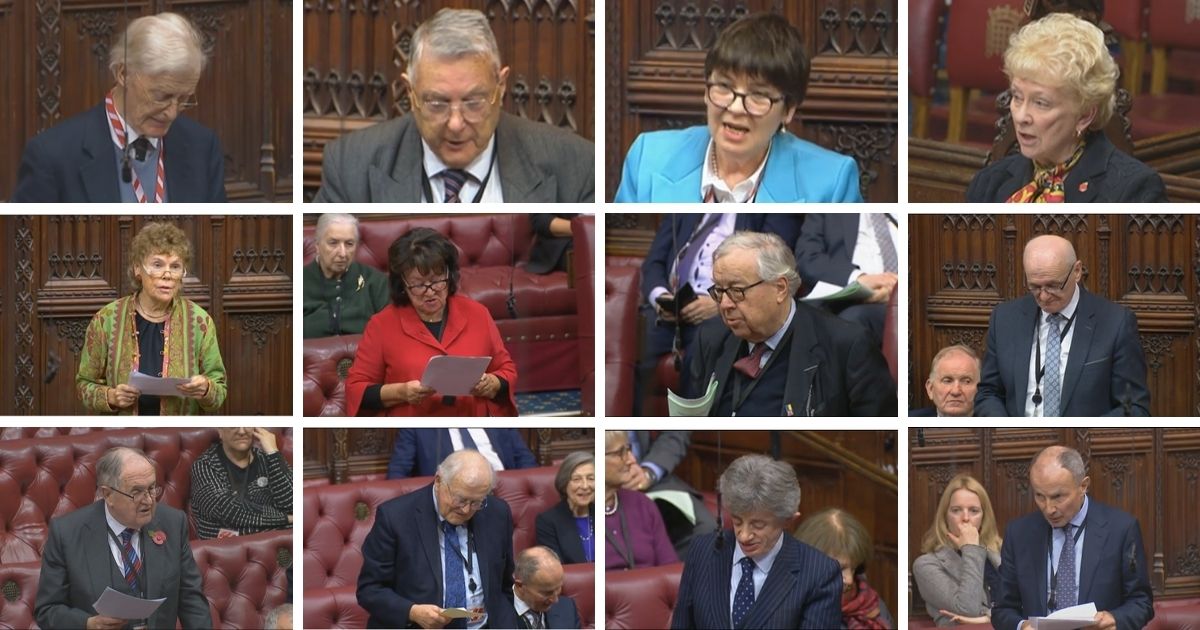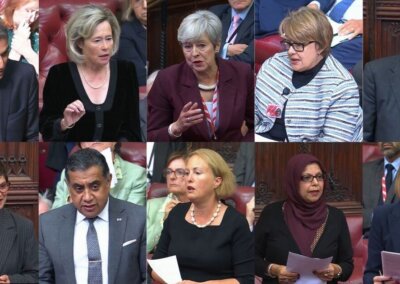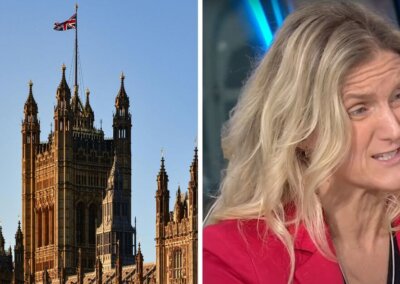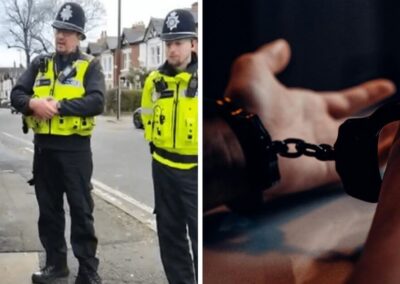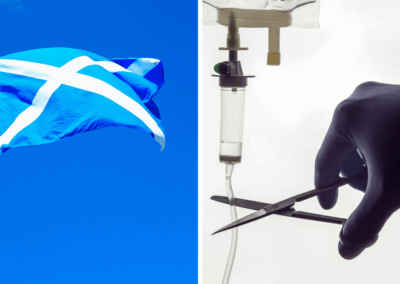A large cross-party group of Peers has spoken out against introducing nationwide buffer zones during Committee Stage of the debate of the Public Order Bill, which took place in the House of Lords this evening.
There was strong support from across the House for amendments that were tabled by Baroness Fox and Lord Farmer, which would limit the impact of the buffer zone clause that was introduced to the Bill in the House of Commons last month.
If the clause in its current form becomes law, ‘buffer zones’ around abortion clinics will be introduced nationwide, banning offers of help and alternatives to abortion.
In the debate, more Peers spoke against the inclusion of Clause 9 than spoke in support of the plans, showing the strength of opposition to the change in the law.
Baroness Fox, who made it clear in her speech that she is a “passionate advocate of women’s reproductive rights and bodily autonomy” spoke firmly against the abortion buffer zone clause in the Public Order Bill.
A number of Peers, who spoke in support of the amendments tabled by Baroness Fox to the clause, sought to limit the range of acts potentially criminalised by this provision by ensuring buffer zones are necessary and proportionate, including removing “seeks to influence”, adding a reasonable excuse defence, and reducing the punitive sentences for those found guilty.
A number of Peers also spoke in support of Lord Farmer’s amendments that would require the Government to conduct a consultation to inform the evidence base around problems close to clinics ahead of giving powers to the Government to introduce buffer zones.
Lord Farmer said that the buffer zones clause is “fundamentally flawed and should have never been added to the Bill. Clause 9 is simply not about public order. It chillingly polices access to the idea that is contrary to pro-abortion orthodoxy that there are other ways to approach this most difficult of decisions”.
Baroness Eaton argued that we cannot ‘cherry-pick’ the causes that have access to fundamental rights and that we cannot use criminal force to ban activities that we find ‘distasteful’.
Liberal Democrat Peer, Lord Beith, warned that the “historic rights of free speech could be damaged” and legitimate “actions of innocent people…could be made the subject of criminal prosecution”.
Labour Peer Lord McAvoy said he had “looked through the Home Office review from 2018, and it is interesting to note how little evidence is provided there that these buffer zones are needed. The review also sets out why the policy is unworkable.”
Additionally, Baroness Hoey spoke about the practical implications of Clause 9, saying that “the wording is so broad that individuals cannot know if their actions cross the threshold of criminal behaviour. With so many interpretations available, how can the police know when the threshold of criminality has been crossed? More to the point, is not the very purpose of freedom of expression and protest to “influence”, “advise”, “persuade” or “inform”?”
Lord Shinkwin, a former commissioner of the Equality and Human Rights Commission, asked if “we really want to put the state in the wholly invidious position of locking people up for exercising their freedom of conscience when their only crime would be to bear witness to the serious belief that two hearts beating equates to two lives, interdependent and interconnected but no less individual for that? Since when has that been a crime?
Lord McColl, the Lord Bishop of Manchester, Baroness O’Loan, Lord Cormack, Lord McCrea and Lord Balfe also spoke out against clause 9.
Right To Life UK spokesperson Catherine Robinson said “Tonight a large group of Peers from a number of different parties and different viewpoints on the wider issue of abortion have highlighted a series of serious issues with introducing buffer zones around abortion clinics nationwide”.
“Hundreds of women have been helped outside abortion clinics by pro-life volunteers who have provided them with practical support, which made it clear to them that they had another option other than going through with the abortion”.
“As has been pointed out many times, there are laws in place to prevent harassment and intimidation and these should be enforced if and when necessary. There is no need for further draconian legislation”.


